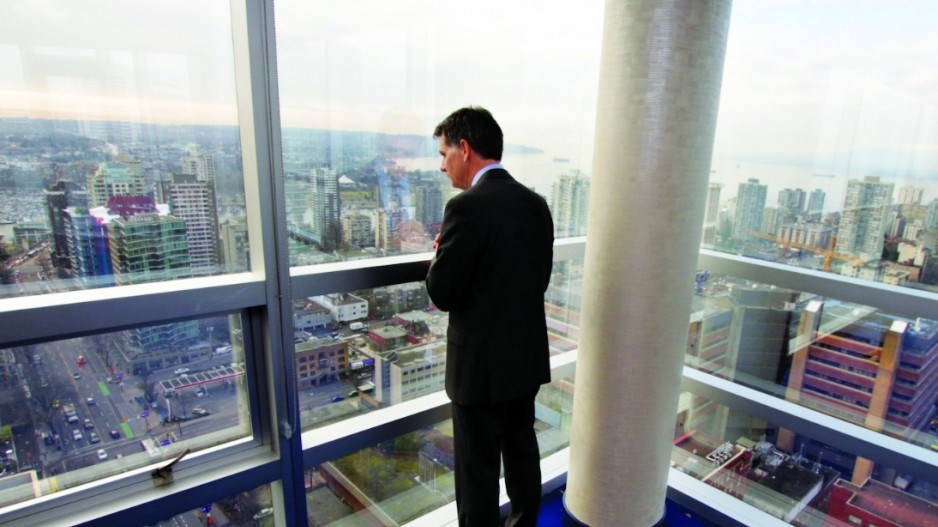The tsunami of COVID-19-induced insolvencies predicted at the start of the pandemic has yet to materialize, even in especially hard-hit sectors.
In fact, Canadian business insolvencies hit a record low in 2020, according to the Office of the Superintendent of Bankruptcy, due in large part to government aid programs.
Though the economy is recovering, some believe that wave of filings has merely been delayed, not deterred, and that mergers and acquisitions will pick up this year as federal supports end and as financial institutions cap payment deferrals.
“I think it will be coming. In the second half of 2021, we’ll see a lot more activity as the financial institutions put pressure on the owners, and the owners look at their portfolio and say, ‘Can I carry this for the next two years, or should I make the decision?’” said Ian McAuley, president and CEO of VM Hotel Acquisition Corp. (TSX:VMH.V), a newly created special purpose acquisition company (SPAC) that went public on the Toronto Stock Exchange last week after raising US$100 million in an initial public offering.
McAuley says the corporation, headquartered in Toronto and incorporated in B.C., is the first SPAC of its kind and intends to build through acquisition a portfolio of high-quality hotel assets in North America.
“We’re offering owners the opportunity to sell their hotel at some level below its intrinsic value,” he said.
Owners get cash and an opportunity to take shares in VM Hotel, allowing them the chance to gain back equity that may have been lost in selling their hotel at a discount.
“This gives them an opportunity to take an illiquid asset and turn it into liquidity, if they take shares,” McAuley said. “My phone’s been ringing off the hook.”
VM Hotel has 18 months to make its first acquisition, and McAuley said he will be looking at 100 properties over the next several months. He has received calls from nearly every province in Canada, including from B.C.-based owners.
Part of the company’s acquisition strategy is to target distressed hotels at attractive discounted valuations. That strategy is based on industry commentary that suggests it may take three to four years for market conditions to return to pre-pandemic levels.
“Any organization which has a good solid balance sheet and a clean balance sheet, they will struggle, but they will get to the other side. Those assets which were under duress before because of the debt servicing load that they were under, it will really challenge those organizations to look at what their future looks like,” said Vivek Sharma, CEO of the Fairmont Hot Springs Resort and board chairman of the Tourism Industry Association of BC (TIABC).
Sharma, whose resort has a proposed M&A deal in place, said he has yet to see many examples of properties selling for pennies on the dollar.
“But when we talk about, from an industry perspective, the industry collapsing if we don’t get government aid, that is something which could happen. If the government doesn’t step in to ensure that a business gets to the spring of 2021, then they don’t get to the spring of 2021.”
TIABC CEO Walt Judas said the industry wants the federal government to create a reopening plan for tourism and hospitality operators who are unable to plan for the future without insight on when travel restrictions may ease.
Large operators could also use additional forms of financial support, he said.
“Absent of the kind of relief that’s needed in the form of liquidity, we have to look at a restart plan at the right time. Maybe there’s an option to open borders at the right time if people coming here are already vaccinated and don’t put anybody else at risk.”
Judas added that several options could be explored.
Unlike the savings and loan crisis of the ’80s and ’90s, and the global financial crisis of 2008-09, McAuley said financial institutions haven’t recalled loans and taken back hotels. But he noted that deferral periods are soon coming to an end. He hopes VM Hotel will be able to provide operators with liquidity, and investors with an opportunity to play in the industry’s rebound.
“We’re all optimists, but it is: how long will it take, and what will normal be?” McAuley said. “We’re not trying to be opportunistic and hurt people. We’re trying to provide a vehicle and institutional capital to assist people with their decisions if they have to sell something.”




